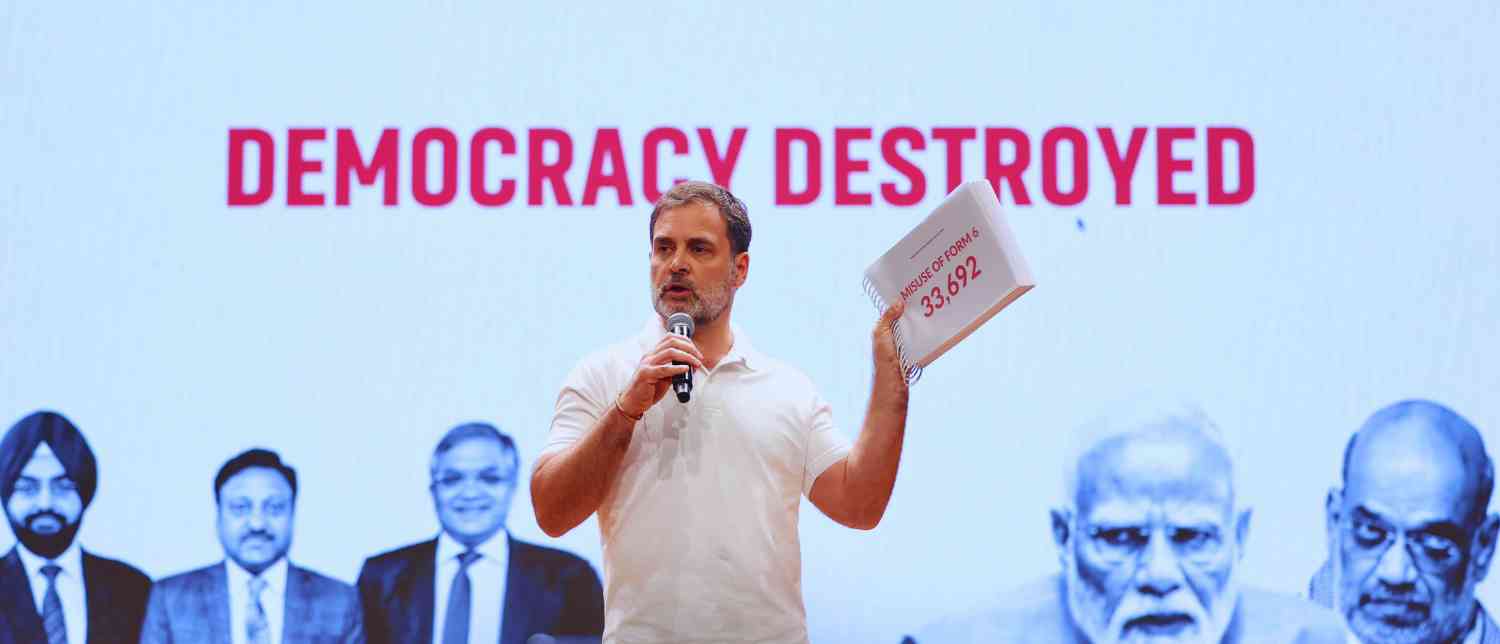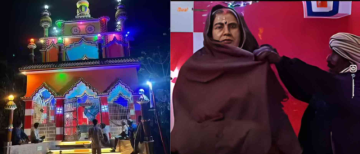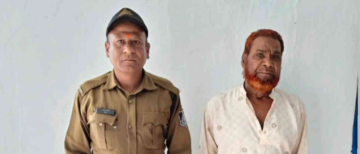Rahul Gandhi, a prominent Indian political leader, held a detailed press conference on allegations of large-scale election fraud and vote manipulation in India. His speech, lasting over an hour, focused on evidence of "vote chori" (vote theft), particularly in states like Maharashtra and Karnataka, highlighting systematic irregularities that challenge the integrity of India's democratic process.
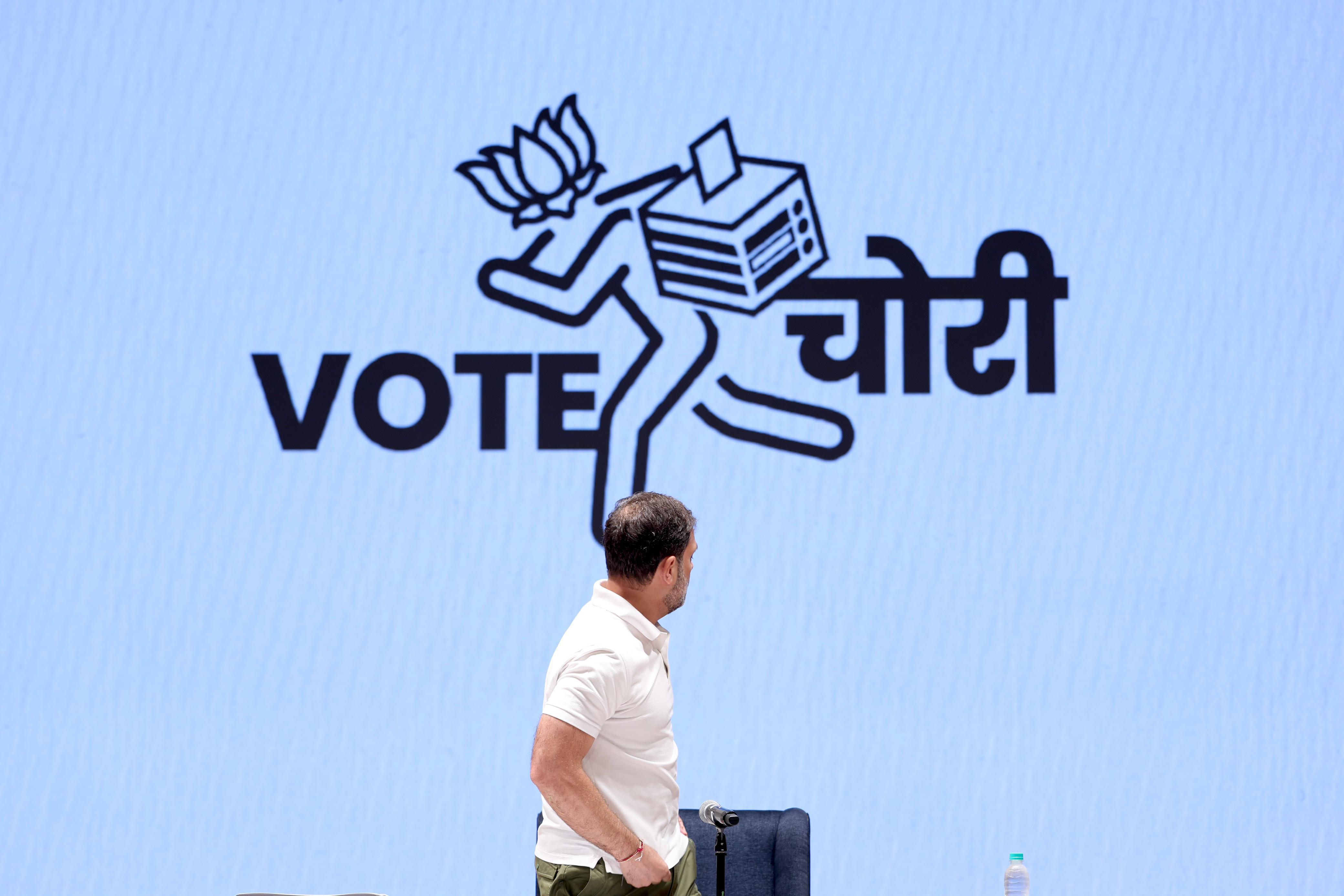
He began by stressing the constitutional foundation of Indian democracy, which rests on the principle of "one person, one vote." He emphasized that every citizen's vote should count equally, and the entire electoral process hinges on the transparency and accuracy of voter lists and voting machines. Over recent elections, suspicions have grown among the public and political parties about the security and authenticity of voter registrations and election results.
Rahul Gandhi pointed out a troubling pattern: opinion polls and exit polls were consistently contradicted by actual results, especially in states like Haryana and Madhya Pradesh. These discrepancies raised concerns that elections were being manipulated. He attributed this partly to the changes in how elections are conducted, noting that voting now happens over multiple phases and months in different regions, unlike the past when the entire country voted on a single day using traditional ballots. This elongation, he suggested, makes the electoral process vulnerable to choreography and manipulation.
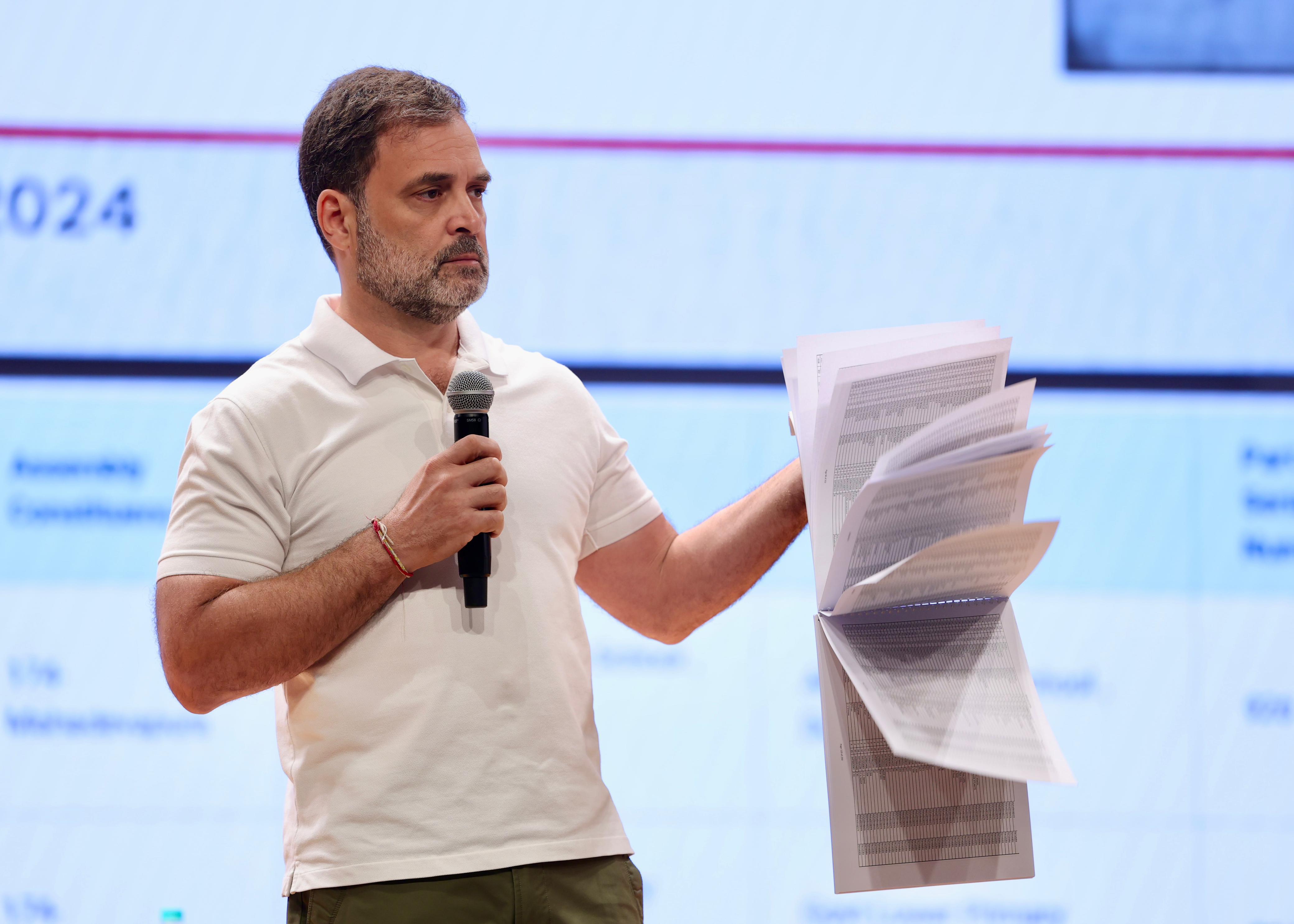
A key case study he presented was the Maharashtra elections, where he alleged that "more voters were added in five months than in the previous five years combined." The state saw a stark mismatch between voter turnout and results, with a suspicious increase in voters appearing after official voting hours. His team investigated voter lists and discovered millions of irregularities including duplicate voter names, fake or invalid voter addresses, bulk voters registered at the same address (e.g., dozens of voters listed in a single small house), invalid photographs on electoral rolls, and misuse of "Form Six," which is used to register new voters. For example, there were cases of voters registered with impossible ages (like 95 or 98 years old) listed as new voters supposedly voting for the first time.
He detailed how these fraudulent voters impacted elections, especially in specific assembly segments such as Mahadevapura in Karnataka, where the margin of victory was heavily skewed by over 125,000 stolen votes identified with detailed analysis. This staggering number emerged from cross-checking photographs, names, addresses, and voter lists painstakingly over six months. These fraudulent voters and their manipulated data contributed to a sudden and massive sway in favor of certain political parties, undermining natural electoral competition.
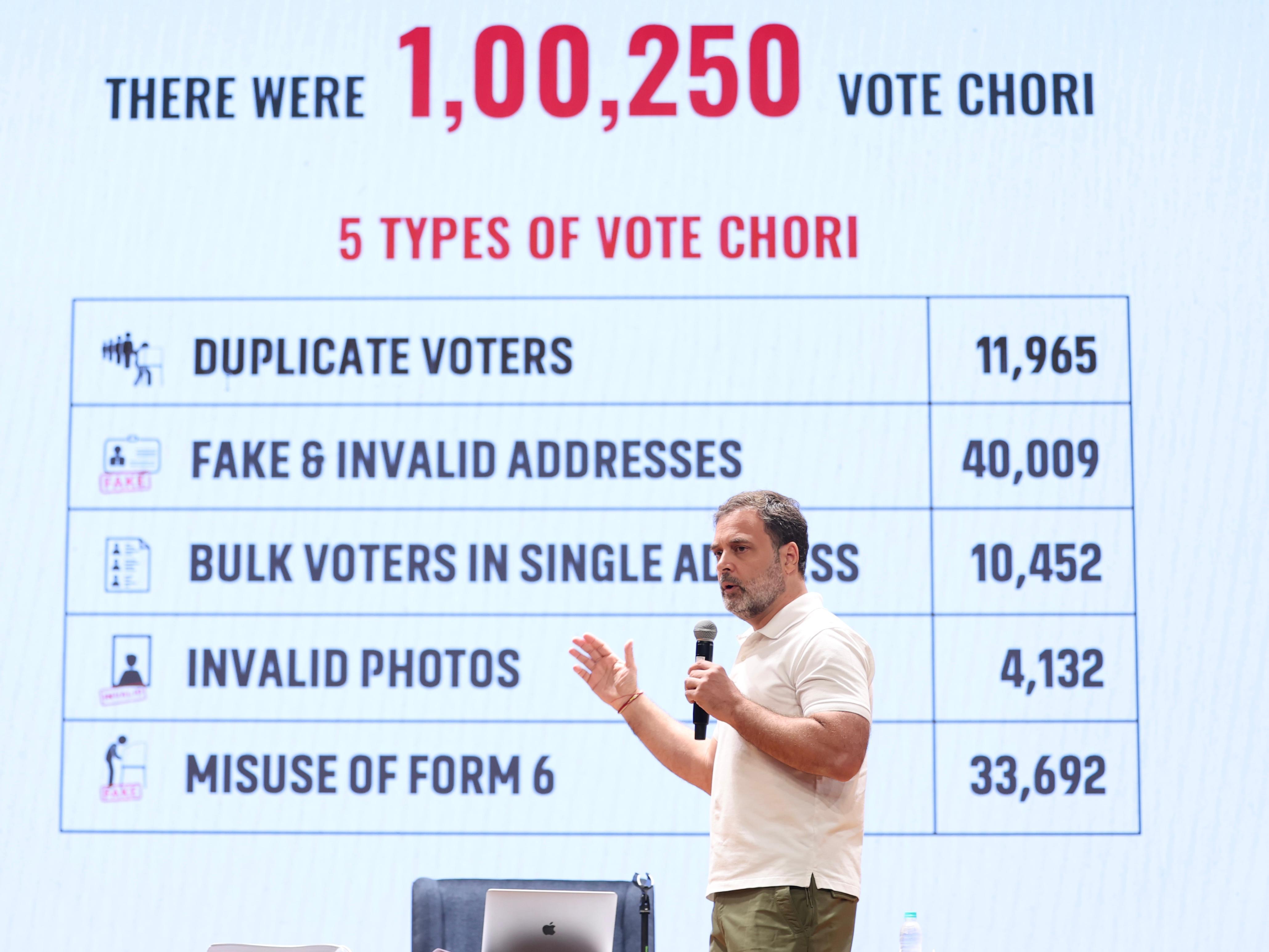
Another alarming issue raised was the destruction of critical evidence. Rahul Gandhi accused the Election Commission of India of conspiring to destroy CCTV footage from polling booths within 45 days—footage that could reveal illicit vote manipulation. Similarly, he criticized the refusal of the Election Commission to share voter lists in machine-readable, digital formats, which would enable independent analysis and verification. Instead, voter data is handed over in forms that cannot be electronically analyzed, and in many cases, partial or non-machine-readable formats. This lack of transparency, he said, protects the perpetrators and hinders accountability.
Rahul Gandhi's investigation team found thousands of names repeat multiple times across different polling booths and even different states, such as voters registered and voting in both Karnataka and Uttar Pradesh simultaneously, a clear impossibility under fair electoral conditions. The list of duplicated voters alone runs into tens of thousands. Also exposed were “fake” addresses where no corresponding residents existed, including commercial establishments or single-bedroom houses claiming dozens of voter registrations. The photos of many registered voters were either missing or so small and unclear that identification was impossible.
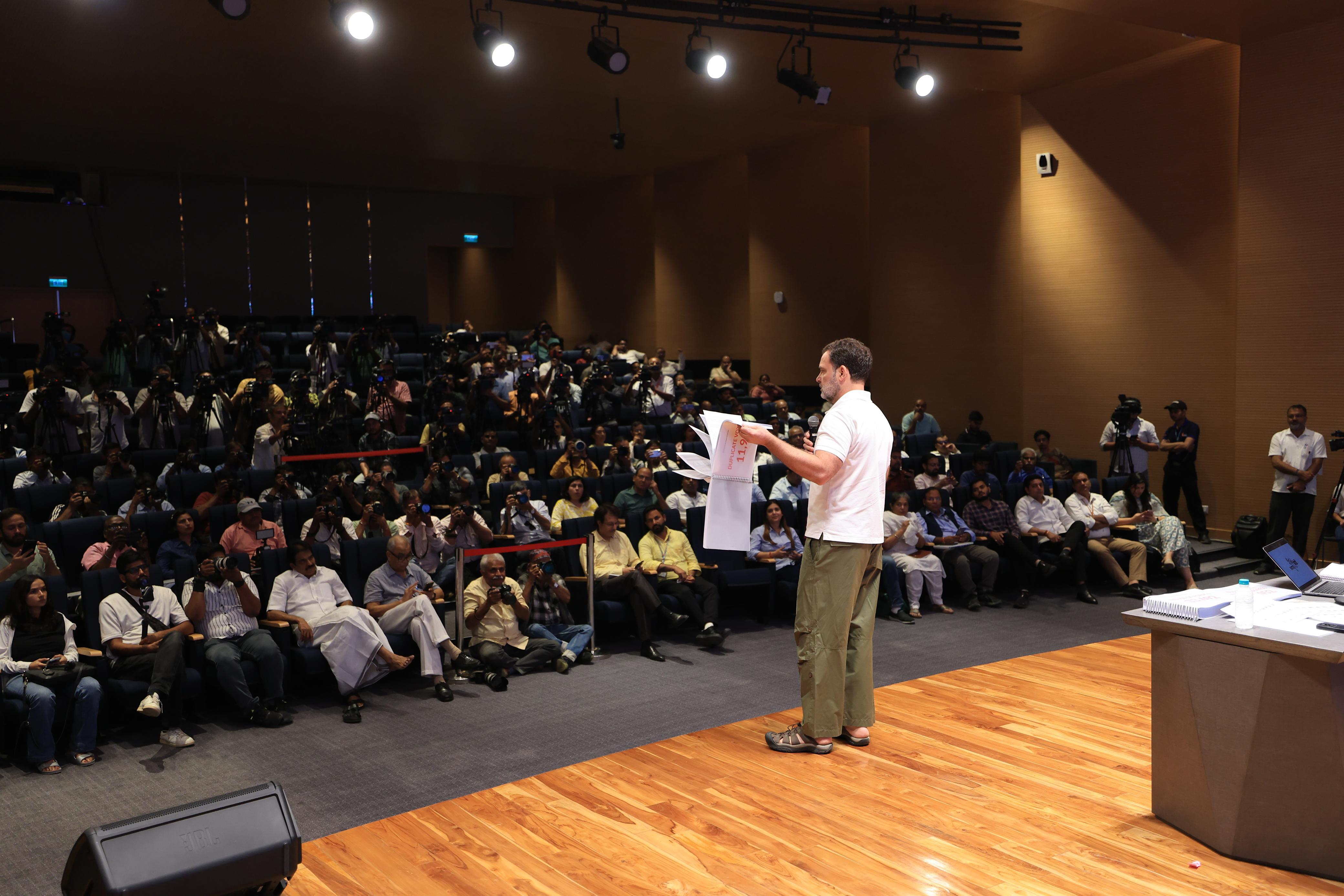
He explained the particular misuse of Form Six, which allows new voters to be added to electoral rolls. Several new voters were registered with implausible ages, some nearly a century old, indicating outright fabrication. In some cases, individuals were registered to vote multiple times under slightly altered names or incomplete information, and votes were cast multiple times either by proxy or fraudulently. This systemic manufacture of "new voters" dilutes the genuine voting population and skews election outcomes.
Rahul Gandhi concluded by declaring that these actions amount to criminal fraud against the Indian Constitution and the democratic fabric of the nation. He charged the Election Commission with complicity in this crime by enabling and protecting such widespread electoral malpractice. The evidence, he asserted, is clear and voluminous, running into hundreds of thousands of stolen votes across multiple states. This threatens the very legitimacy of elected governments and has potentially enabled massive political power shifts.
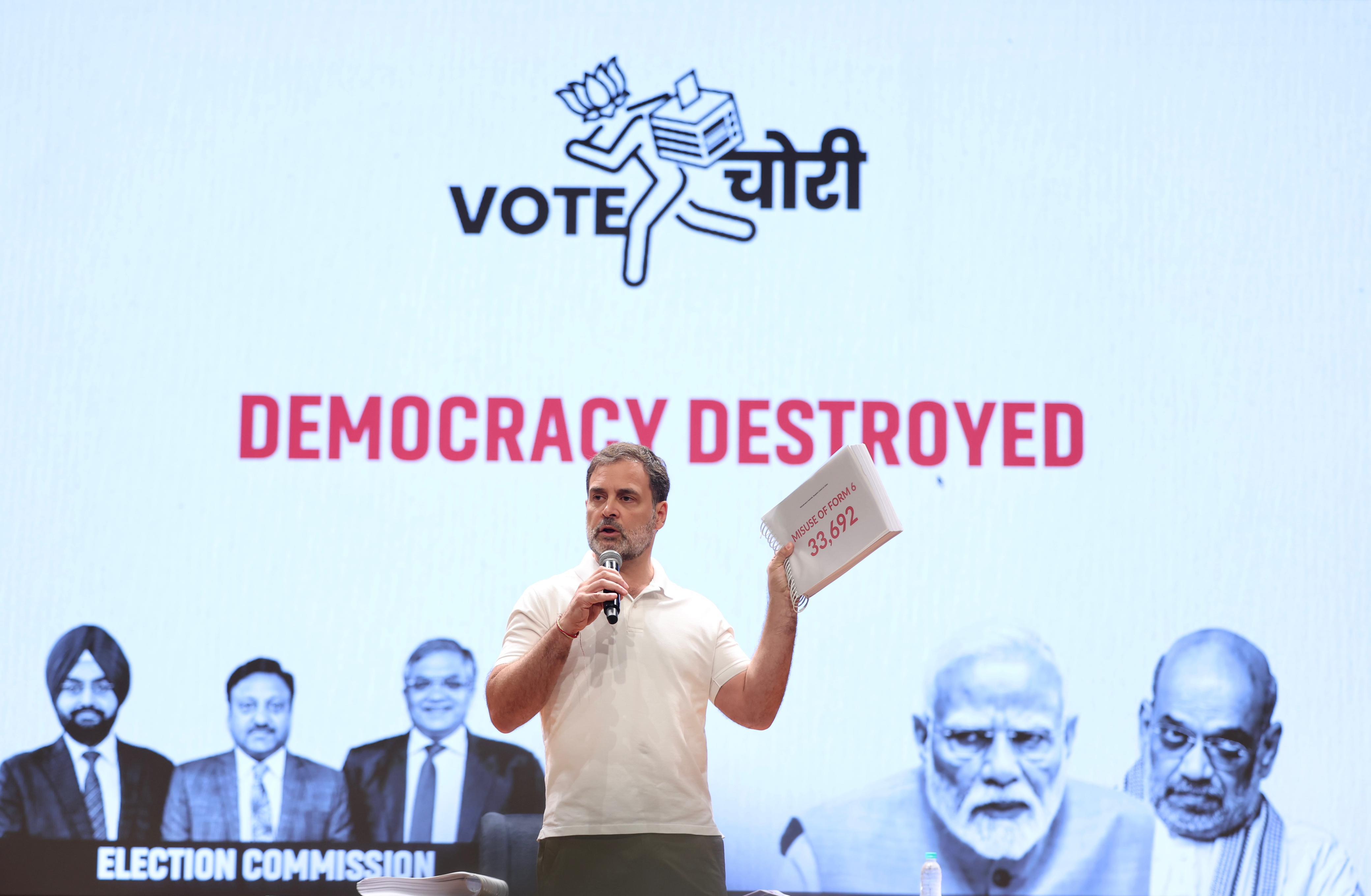
He urged the nation to be aware of this serious crisis and demanded accountability. Withheld or destroyed evidence, non-cooperation by the Election Commission, and the refusal to provide usable election data collectively point to a deliberate effort to subvert democracy. Rahul Gandhi promised to continue pressing for transparency and legal action, despite frustrations with the current system's guardedness and inaction. His presentation was a call to preserve the sanctity of elections in India and protect each citizen's right to vote honestly.
This detailed expose outlines multiple critical points about electoral integrity concerns in India:
-
Constitutionally, every vote must count equally under "one person, one vote".
-
Suspicious disparities between opinion polls and actual election results were observed in multiple states, signaling possible vote rigging through secret means.
-
Election scheduling and phased voting over extended periods create opportunities for manipulation hidden from public oversight.
-
Voter rolls contain duplicates, fake addresses, invalid photos, and manufactured new voters registered with fraudulent details.
-
Enormous numbers of votes have been stolen or fabricated in single constituencies to sway election outcomes disproportionately.
-
The Election Commission has been accused of obstructing transparency by withholding digital data and destroying CCTV footage crucial for audit and investigation.
-
Vote theft and electoral fraud are alleged to be occurring across states systematically, representing a massive constitutional crisis and threat to democracy.
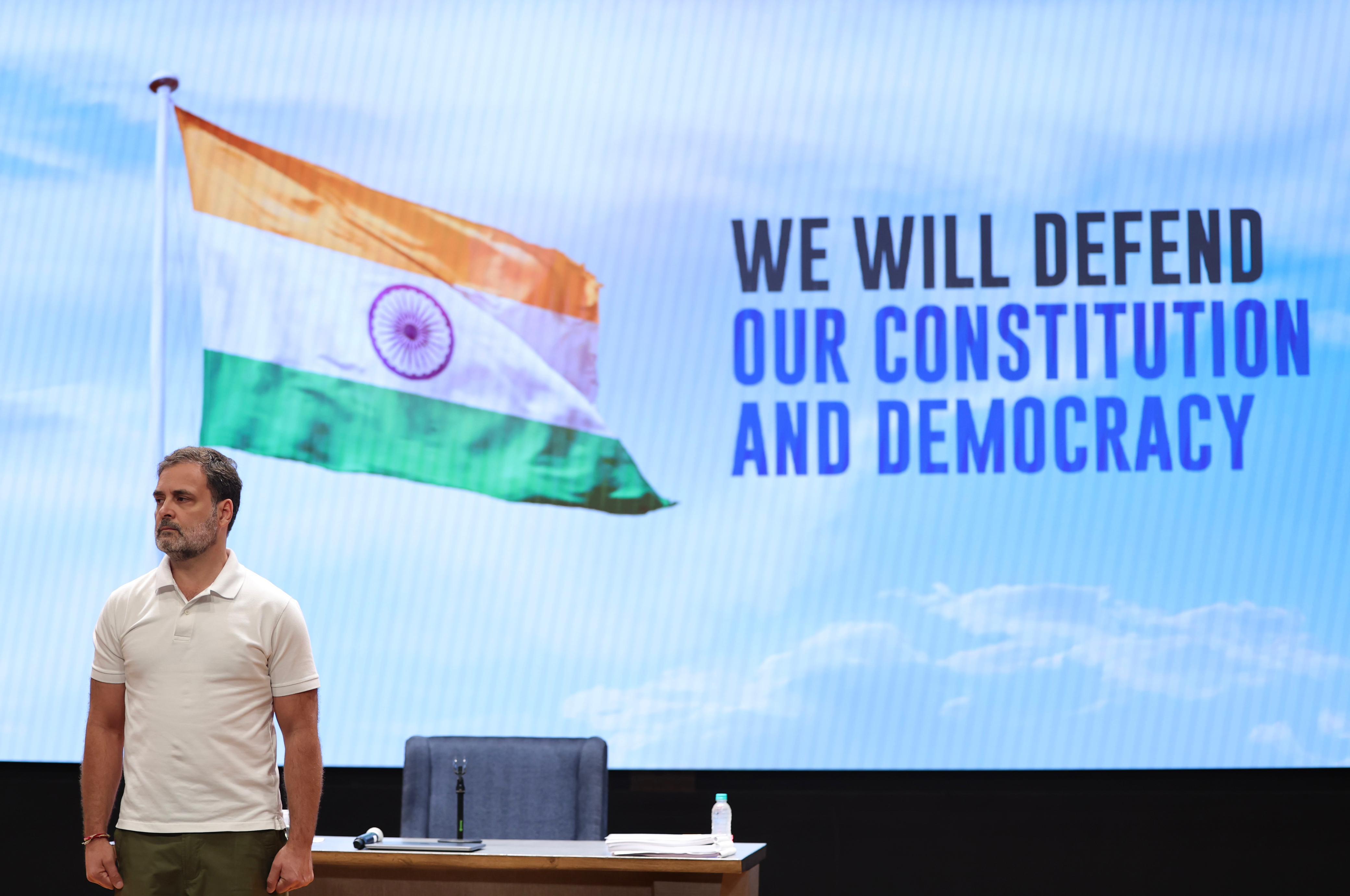
Rahul Gandhi’s press conference was a detailed exposé backed by extensive data analysis and field investigations aimed at revealing systemic election irregularities that undermine democratic governance in India. The allegations call for urgent institutional reforms and legal scrutiny to safeguard the electoral process.
The upcoming rally, titled the "Vote Adhikar Rally," is being led by Rahul Gandhi and senior Congress leaders in Bengaluru. The purpose of this rally is to protest against the alleged large-scale electoral fraud and voter manipulation exposed by Rahul Gandhi's detailed investigations and press conference. This rally aims to raise public awareness about the serious threats to the integrity of India’s democratic process caused by the irregularities in voter lists, duplications, fake addresses, and suspected collusion between certain political forces and the Election Commission.
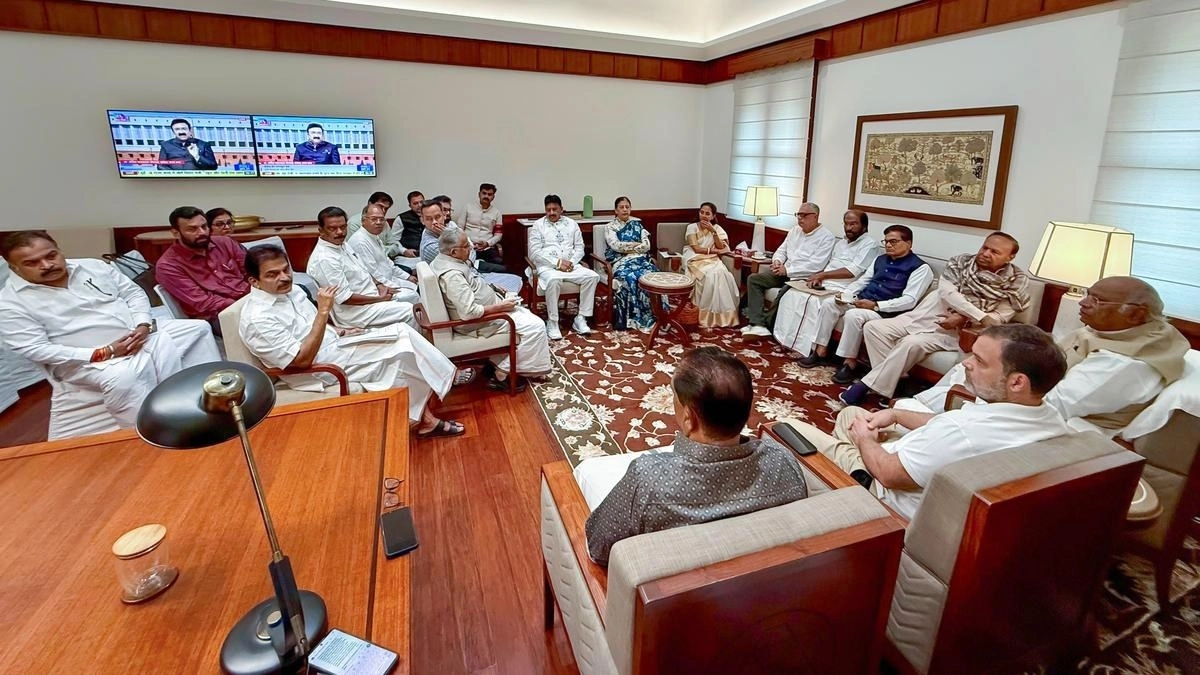
People participating in the rally can expect clearer visibility into these electoral malpractices and a demand for accountability from the Election Commission and ruling political parties. The rally seeks to empower voters by asserting their fundamental right to honest and fair elections—what Rahul Gandhi refers to as "one person, one vote." It also aims to pressure institutions into transparency, including the release of machine-readable electoral data and the protection of evidence such as CCTV footage from polling stations.
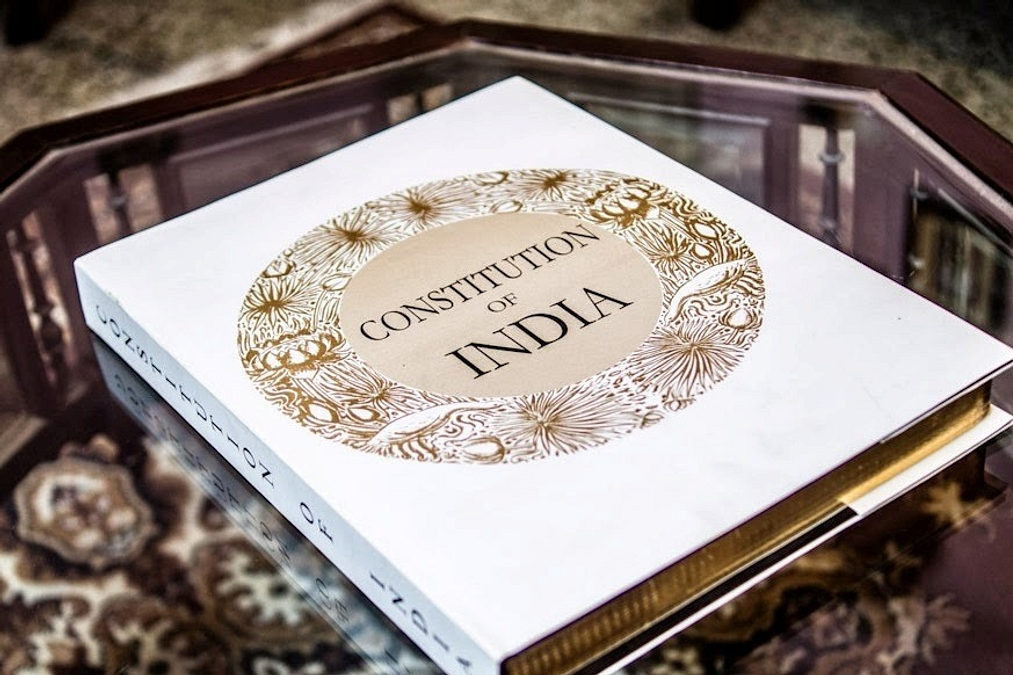
Ultimately, the benefit for citizens from this rally would be the preservation and strengthening of democratic rights, ensuring that every vote cast truly counts and that electoral outcomes reflect the genuine will of the people rather than manipulation or fraud. This is positioned as a crucial step to safeguard Indian democracy and support fair governance for all.
With inputs from agencies
Image Source: Multiple agencies
© Copyright 2025. All Rights Reserved. Powered by Vygr Media.

